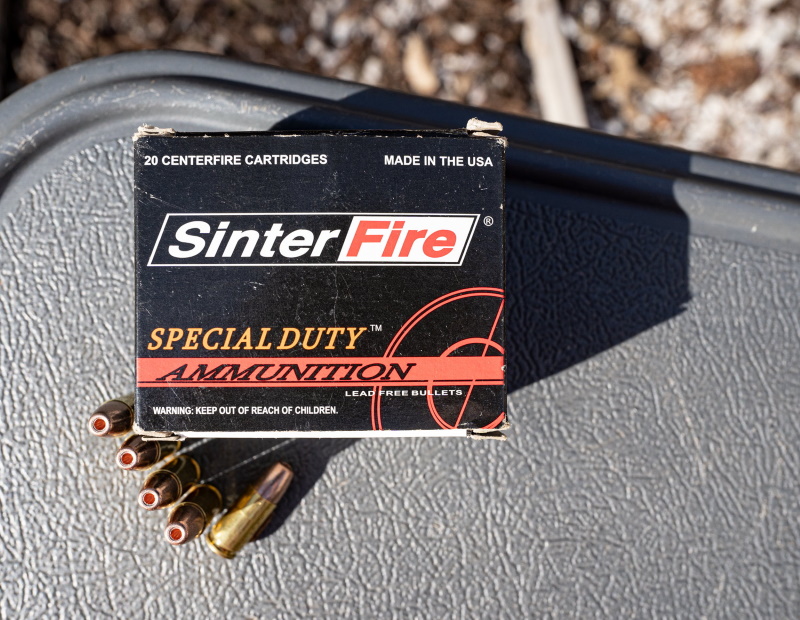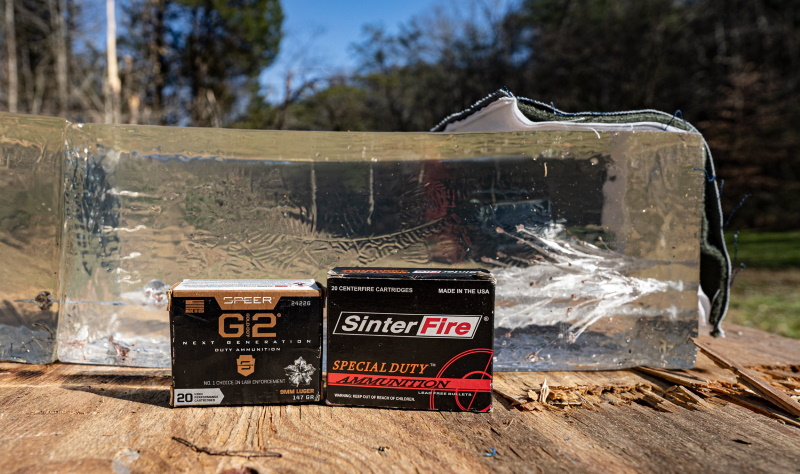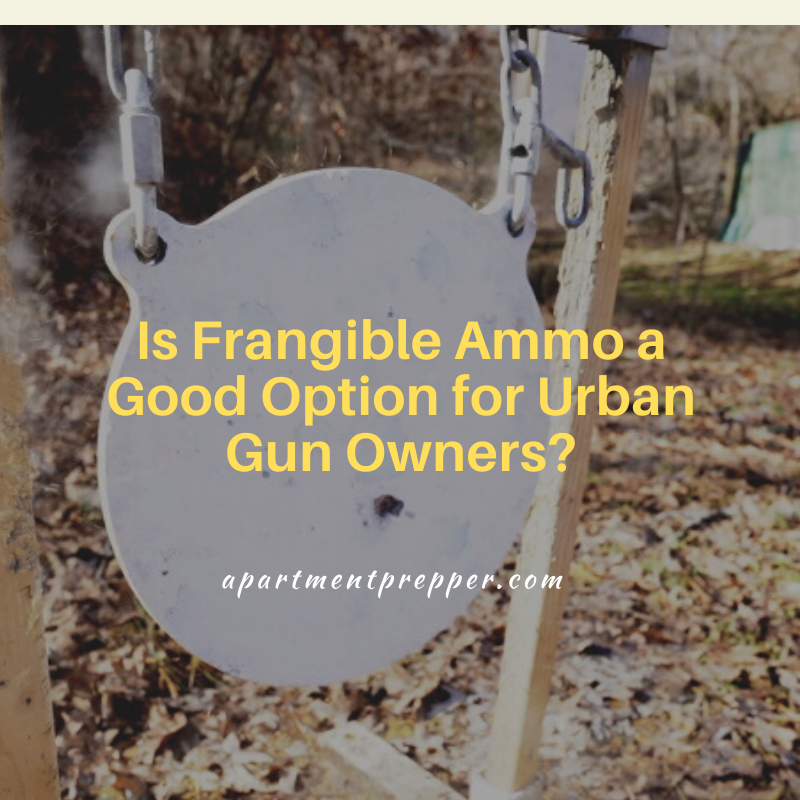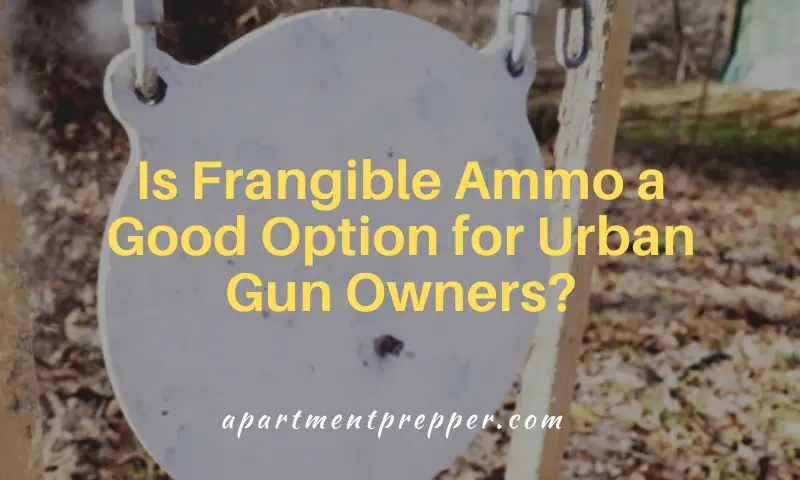Written by David Lewis
“Identify your target, and what is behind it.” This is Colonel Jeff Cooper’s fourth basic rule of firearm safety, and it would ideally apply to home defense just as well as it would range training.
Unfortunately, people who share walls with their neighbors can’t follow this important rule to the letter. If you have to neutralize a threat to your safety within an apartment, condo, or even a suburban home, you typically cannot with 100 percent certainty ensure your bullet won’t penetrate a wall to jeopardize an innocent bystander.
You can take certain precautions. A weaker cartridge, though it may want for stopping power, is less inclined to penetrate multiple layers of wallboard. A hollow point bullet, which is advisable for personal protection anyway, will anchor itself better within soft tissue to reduce the chance of overpenetration. And of course good aim helps, too.
Many people wonder if frangible ammunition is suitable for home defense when they want to minimize the likelihood wall penetration. This is a reasonable question, and it’s the one we want to answer in this short article.
What Is Frangible Ammunition?
A conventional bullet is made of solid metal – typically lead and copper alloy. A frangible bullet, on the other hand, is made of “sintered” metal powders – typically a blend of tin and copper.

Sintering is a process by which powdered materials are heated into a solid mass without liquefying or fusing them together. In effect a frangible bullet is solid enough to remain intact under the intense pressure of ignition, but will crumble and/or disintegrate when it collides with a surface harder than itself.
What Is Frangible Ammunition Used For?
Interestingly enough, frangible bullets were invented for use at amusement parks. Shooting galleries were a common attraction back in the day, and we assume it took a few unfortunate ricochets before a safer bullet was developed.
Today frangible ammo is almost entirely used for tactical training. Law enforcement professionals frequently train in close quarters with steel targets, which are durable and give good feedback as they go “pting” when shot. When a conventional bullet strikes a sheet of steel, there is a substantial risk of a ricochet or “splash-back,” which is essentially where little pieces of metal fly back at you. Splash-back is about as pleasant as it sounds, so a frangible bullet’s tendency to erupt into dust on impact makes training with steel targets almost entirely safe.
Because frangible bullets disintegrate on impact, they are also used by security and law enforcement professionals responding to threats in sensitive areas. These do include densely populated apartment communities where penetration through the threat or a wall could harm innocent bystanders. They also include locations where a bullet could do serious property and/or collateral damage, such as chemical processing plants, nuclear power plants and oil refineries. Federal Air Marshals use frangible ammo – if you remember how Auric Goldfinger died, you know why.
Is Frangible Ammo Good for Home Defense?
Frangible bullets offer two key advantages for training: the virtual elimination of ricochets and splash-back when shooting at a hard backstop, and the elimination of toxic lead vapor and airborne particles. Unfortunately, these traits both impact a frangible bullet’s suitability for self-defense.
Because they lack lead, frangible bullets frequently weigh less than what is normal for a given cartridge. A lighter bullet carries less momentum, and is accordingly less equipped to penetrate deeply into soft tissue.
A frangible bullet may also disintegrate before it has reached a vital organ. Conversely, even 9mm frangible ammo is still capable of the overpenetration you would wish to avoid when defending your home. A bullet that is designed to disintegrate when it hits steel may still pass through soft tissue. It may potentially penetrate multiple layers of wallboard as well. In short, it’s not a sure thing.

A frangible bullet is also essentially incapable of terminal expansion. In addition to helping prevent overpenetration, a hollow point bullet is (A) designed to transfer most if not all of its available energy to a threat while (B) simultaneously boring a wider hole than its original diameter alone could account for. While getting hit with a frangible bullet would certainly be unpleasant – and very likely lethal – it’s just not poised to deliver as much damage as a hollow point.
The Takeaway
Frangible ammunition offers indispensable safety for certain types of tactical training. And although professionals may use frangible ammo to engage threats in sensitive locations, it is not without its serious drawbacks.
Whether you would entrust your life to the performance of ammo that is not optimized for self-defense is ultimately up to your discretion. If you feel obligated to minimize the chance of wall penetration to the greatest extent possible, then you may justify frangible ammo’s lower effectiveness at neutralizing a threat as a necessary trade-off. But if you would rather defend yourself and your own with the most effective tools available, then frangible ammo does not belong in your home defense weapon’s magazine.
About the author:
David is a certified range instructor and self-defense minded shooter. His experience includes numerous training classes for tactical and defensive shooting concepts as well as years of experience testing and writing about ammunition for the AmmunitionToGo.com blog, The Lodge. A father and husband, David is an avid deer and turkey hunter as well.


